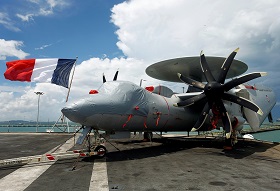Over the past year, the Western countries seem to have been searching for new strategies. Since the end of 2019, NATO has been developing a new concept, and in June 2021 at the summit in Brussels, to the displeasure of sceptics, it was possible to agree on its basis—the transatlantic agenda NATO 2030 (# NATO2030). While the broad formulations and a direct hierarchy of threats still require clarification, new projects in the field of weapons development, combating climate change, and increasing interoperability have already been declared.
In parallel, since the end of 2020, work has continued on the EU European Parliamentary Research Service project—the Strategic Compass. The dialectic between Atlanticism and Europeanism softened after Joe Biden came to power in the United States, but the European interests and red lines retain their significance for transatlantic relations. In 2022, together with the rotating post of the President of the EU Council, the role of a potential newsmaker in this area has been transferred to Emmanuel Macron, who feels very comfortable in it.
Objectives of the French Presidency, are not articulated directly but are quite visible—making the EU more manageable and accountable to its members, with new general rules to strengthen mobilisation potential, and improve the EU’s competitiveness and security in a world of growing challenges.
A special priority of the French presidency is to strengthen the defence capabilities of the EU. On the sidelines, the French diplomats note that the adoption of the Strategic Compass in the spring of 2022, as originally planned, is a fundamental task, since otherwise the process may be completely buried.
The search for allies seems to be of key importance for victory at the European level, and the French Foreign Ministry has already begun working on this matter. The change of cabinet in Germany will undoubtedly have an impact on the nation’s policy. On the one hand, following the results of the first visit of the new Chancellor Olaf Scholz to Paris on December 10, the parties announced the closeness of their positions and a common desire to strengthen Europe. On the other hand, the coalition of Social Democrats (SDP) was made up with the Greens and Free Democrats (FDP) who are not at all supporters of excessive involvement in security issues. What “strategic autonomy” means for France, constitutes a more restrained “strategic sovereignty” for Germany Therefore, an intensification of dialogue with Italy and Spain, which are both respected and potentially sympathetic, is likely. The military cooperation agreement concluded in the autumn of 2021 with Greece, an active member of PESCO, can also help Paris.
The countries of Eastern Europe, which assume that it is necessary to confront Russia but lack the resources to do so, will act as natural opponents of the French initiatives in the EU, while Paris, Rome and Madrid will oppose them and the United States in the transatlantic dialogue.
2021 has been rich in negative events for European security: the world has witnessed the collapse of the Open Skies Treaty, American-French discord concerning AUKUS, the termination of the official dialogue between Russia and NATO, and the migration crisis on the Polish-Belarusian border.
Over the past year, the Western countries seem to have been searching for new strategies. Since the end of 2019, NATO has been developing a new concept, and in June 2021 at the summit in Brussels, to the displeasure of sceptics, it was possible to agree on its basis—the transatlantic agenda NATO 2030 (# NATO2030) . While the broad formulations and a direct hierarchy of threats still require clarification, new projects in the field of weapons development, combating climate change, and increasing interoperability have already been declared.
In parallel, since the end of 2020, work has continued on the EU European Parliamentary Research Service project—the Strategic Compass. The dialectic between Atlanticism and Europeanism softened after Joe Biden came to power in the United States, but the European interests and red lines retain their significance for transatlantic relations. In 2022, together with the rotating post of the President of the EU Council, the role of a potential newsmaker in this area has been transferred to Emmanuel Macron, who feels very comfortable in it.
On December 9, the provisions of the Paris programme were published under the motto “Recovery, power, belonging” France, as expected, is reiterating its call for strengthening European sovereignty. The rhetoric of the document and its author is genuine textbook-realism. But now for the entire European Union.
Objectives of the French Presidency, are not articulated directly but are quite visible—making the EU more manageable and accountable to its members, with new general rules to strengthen mobilisation potential, and improve the EU’s competitiveness and security in a world of growing challenges.
Paris proposes reforming the Schengen area and tightening immigration legislation—a painful point for the EU since 2015, which has become aggravated again in recent months. This ambitious task has become slightly more realistic since Angela Merkel’s retirement in Germany. At least a new crisis response mechanism on this issue can be successful, even if it is not fully implemented.
In addition, the Élysée Palace calls on colleagues to revise the budget deficit ceilings of the Maastricht era to overcome the consequences of the pandemic and finally introduce a carbon tax at the EU borders. The latter allows for a new source of income and provides additional accountability for the implementation of the “green” goals by member countries.
The planned acceleration of the adoption of the Digital Markets Act (DMA) and Digital Services Act (DSA), developed by the European Commission at the end of 2020, is also aimed at unifying the general legislation and consolidating the European position in the world. In other words, the French Foreign Ministry quite soberly assesses the priority areas and vulnerabilities of the European Union and focuses on them, but with one exception.
A special priority of the French presidency is to strengthen the defence capabilities of the EU. On the sidelines, the French diplomats note that the adoption of the Strategic Compass in the spring of 2022, as originally planned, is a fundamental task, since otherwise the process may be completely buried. With a high degree of probability, this is so: the first phase of the development of the Compass—the general list of threats—lasted a year, and consisted of dozens of sessions, meetings, round tables with the involvement of leading experts, but the document was never published. If Macron won’t do it, then who will?
As the main ideologist and staunchest supporter of the EU’s “strategic autonomy”, the French president has been trying for five years to mobilise others for self-sufficiency in the security sphere. With his direct participation, not only the Mechanism of Permanent Structured Cooperation (PESCO) in the defence area was launched, where France is the leader in a number of projects, but also the so-far failed European Intervention Initiative. Even without focusing on French foreign policy traditions and ambitions, the country remains a major European arms exporter and a nuclear power, where the military-industrial complex is closely affiliated with the state.
Implementing the 2022 agenda is also a matter of immediate political gain as France enters a new electoral cycle. The EU Summit will take place on March 10-11, 2022, in Paris, a month before the elections, and in any case it will become part of the election campaign and a test for the reputation of the current leader. Macron has not yet officially announced his participation in the presidential race, but he is actively engaged in self-promotion, because right-wing politicians espousing different degrees of radicalism are ready to take advantage of his defeats to purchase extra points.
The search for allies seems to be of key importance for victory at the European level, and the French Foreign Ministry has already begun working on this matter. In 2016–2017 the launch of new initiatives was predetermined by the support of Germany and the Central and East European countries. The change of cabinet in Germany will undoubtedly have an impact on the nation’s policy. On the one hand, following the results of the first visit of the new Chancellor Olaf Scholz to Paris on December 10, the parties announced the closeness of their positions and a common desire to strengthen Europe. On the other hand, the coalition of Social Democrats (SDP) was made up with the Greens and Free Democrats (FDP) who are not at all supporters of excessive involvement in security issues. What “strategic autonomy” means for France, constitutes a more restrained “strategic sovereignty” for Germany Therefore, an intensification of dialogue with Italy and Spain, which are both respected and potentially sympathetic, is likely. The military cooperation agreement concluded in the autumn of 2021 with Greece, an active member of PESCO, can also help Paris.
Gaining support from smaller countries is more challenging. Although the European project is not an alternative to the transatlantic one, the formation of a common list of threats is a primary task and problem for NATO as well. As mentioned above, it is around it that controversy evolves, because the hierarchy determines the distribution of material resources. The countries of Eastern Europe, which assume that it is necessary to confront Russia but lack the resources to do so, will act as natural opponents of the French initiatives in the EU, while Paris, Rome and Madrid will oppose them and the United States in the transatlantic dialogue. The complexity of combining two conversations about the same thing with a slightly different composition of participants raises the bar for Emmanuel Macron. His stakes are high. The mobilisation of the Élysée Palace’s foreign policy is one of the most interesting subjects to watch in the year 2022.
First published in the Valdai Discussion Club.







